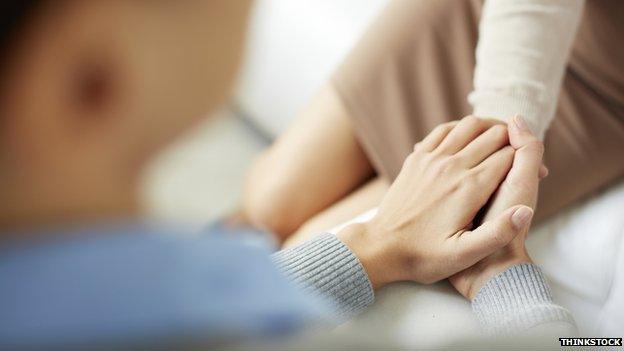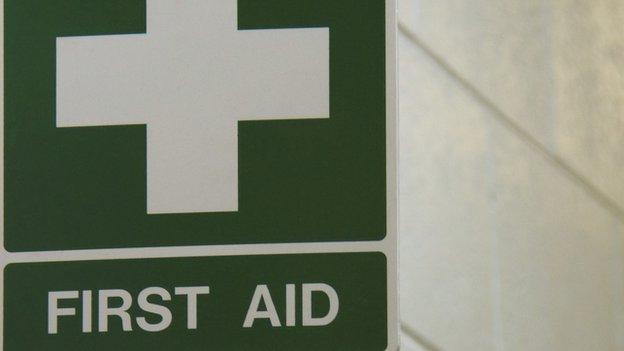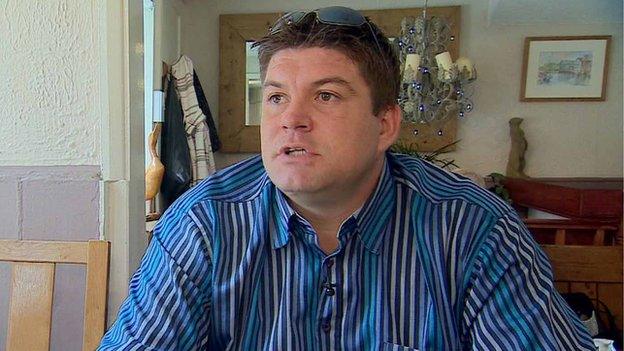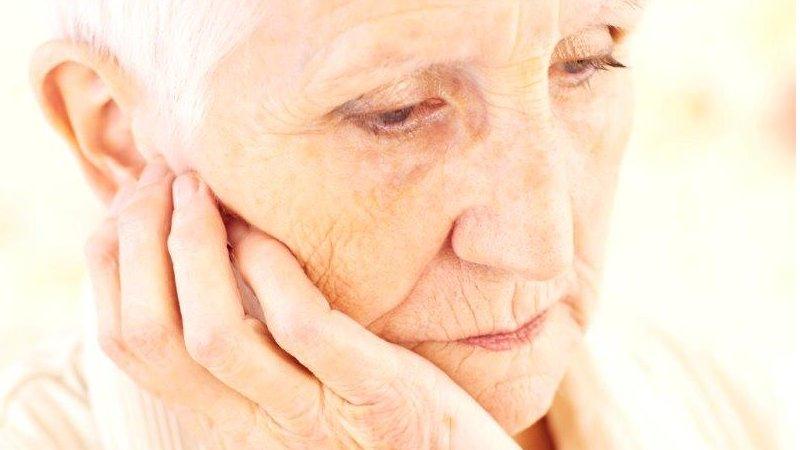Plasters for the mind - the rise in mental health first aid
- Published

Tony Jorm and Betty Kitchener were out for a stroll in their home town in Australia when the idea came to them.
Prof Jorm, a researcher at the University of Melbourne, was discussing a recent mental health conference with his wife, a registered nurse.
He recalled that someone had remarked: "What we need is first aid for depression."
The couple took the comment literally and were inspired to develop a training course in mental health first aid.
"We do come up with the best ideas while walking the dog," says Betty, a registered nurse. "Once the USA took it on, I thought, 'Wow this is amazing'."
Mental health first aid training - which teaches participants how to recognise the signs and symptoms of mental health problems and to respond appropriately - is growing in force.
Since it was founded in Australia more than a decade ago, mental health first aid training has spread around the world, to New Zealand, the US, Canada, Hong Kong, Singapore, Denmark, Sweden, Finland and the UK. Betty speaks to me from Ireland, where she is advising on the rollout of a national programme next year.
"The aim is to increase mental health literacy of members of the community including reducing stigmatisation of the illness and people learning simple first aid skills to be able to see mental illness as like any other illness," she explains.
In England the training is run by a social enterprise company, MHFA England. It would like to see mental health training given equal prominence to physical first aid training and says this is already starting to happen.
Glenn Scott was already a qualified first aider when he was offered the course by his company. And he was soon putting it into practice. He was at an event at Twickenham Rugby Stadium when he saw a woman having a panic attack. A first aider was by her side, but did not seem to know what to do. The 56-year-old catering worker intervened and encouraged her to bring her breathing under control.
"I stepped in and calmed the lady down following my mental first aid training," he says. "I was really impressed that I was able to put my training into practice and actually see it work."
He says the training has improved his understanding of mental health issues, and how to deal with stressful situations at work. "It's really taught me how to speak to people who are vulnerable," he says.

Chris Morgan from Kent is a mental health first aid trainer who knows this from personal experience. He is open about his own struggles with mental health issues during his 40s, while he was running a faltering family business.
"I had to close the company down and make everybody redundant, including myself," he says. "And during that process I got depressed."
He says that over a period of months he got "lower and lower" and "couldn't see any way out of it". "I had suicidal thoughts for months and it came to a crisis for me when I left home one day and determined never to go back and to take my own life."
But he couldn't go through with it and asked his wife and GP for help. He was put in touch with a psychiatrist and eventually made a full recovery. The experience also led to a new career - first in the NHS on suicide prevention work, then as a mental health first aid instructor and trainer.
Chris says people go away from the course with a different perspective on mental health issues and more willingness to listen to other people and to offer help.
"I think one particularly rewarding thing is seeing people realise that everybody has mental health in the same way that everybody has physical health and we should look after our own mental health," he says. "And if we don't we're at risk of developing some kind of mental illness."
- Published3 October 2014

- Published9 September 2014
